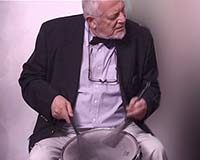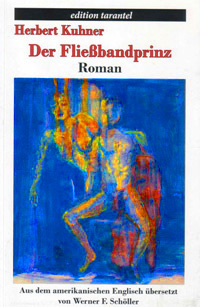The Art Houses of Yore
I must have been born as a film buff, and at an early age, I developed into a foreign-film buff. I was pious in very young years, but in spite of my religiosity, I used the Catholic Legion of Decency List of Condemned Films as a guide. Since the films were thus condemned, I thought that there must be something to them.
In Princeton, I’d go to matinees of Frankenstein, Sherlock Homes, Tarzan and westerns in the Garden Theater. When we moved to Locust Valleys the Cove Theater filled the bill. On trips to New York my mother would take me to art theaters to see the films that the Legion had banned, but not knowingly; she didn’t bother to read my film guide and I did not inform her where the “recommendations” came from.
These black-and-white masterpieces had lascivious scenes galore, and here and there, the briefest flash of a female anatomy zipped across the screen. I knew then that these flashes were an integral part of art.
Later on, there were theaters like the Times Theater on 42nd St with its double-feature bills with provocative titles like Bed and Broad and Bottoms Up, but as far as brass tacks were concerned, there wasn’t even a flash. You were better off trying get a bit of nudity with your culture.

I continued to frequent “art” theaters long after the Legion had given up the ghost. The black-and- white foreign films of the time were as tasty as a French bread and vin ordinaire. And in addition to that, there were the spice of those glimpses of female anatomy.
But with the advent of the Permissive Society and legalized pornography, everything changed. Somehow foreign films theaters become less frequented. Many of the “art” houses of yore were transformed into porno film theaters. You were afforded more than a glimpse in full color, and nothing, absolutely nothing, was left to the imagination.
Isn’t that befitting? Art and nudity have always been associated with each another. Now nudity is filling the bill.
Brecht and Lenya
In the famous photo of Brecht, you can almost smell the tattered stogie. He’s is a dead ringer for Groucho, but without the pasted-on brows and mustache – and the sly humor. Besides having an aversion to the odor of the stogie, I’m put off by the shabby atmosphere of his plays and the high-pitched moralism. I never liked sitting in classrooms, and I’m not wild about drama in which the author uses a blackboard and a pointer.
Unfortunately like many others, the writing of it took precedence over the living of it. And later, during the Berlin uprising, he remained in the confines of his theater until the storm had passed. He preferred to say it and to have a venue for saying it, rather than carrying through. Prior to that, when things got hot in the States due to McCarthy’s witch-hunt. When he was called to testify before the House Un-American Activities Committee, he simply belied what he allegedly was all about. And the next day he flew back to Europe.
To quote my late friend and mentor Emile Capouya: “Claudel was a Heavenly imperialist.” I say that Brecht was a Marxist imperialist, which I don’t think is a contradiction in terms. He wanted the world to be Marxist, come what may, as long as his plays were on the bill. Brecht did for Marxism what Claudel did for Catholicism. Claudel’s pragmatism also overrode his ideology. Claudel may have wanted the world to be Catholic, but besides being an idealist, he was a practical man. He is reputed to have fashioned a paean he originally wrote for Marshal Pétain to fit General de Gaulle. And he was right. Why waste well-wrought sentences after Pétain had justifiably fallen from grace? It’s a writer’s business to publish, and words should take precedence over deeds.

Lotte Lenya
In the Fifties, I saw the legendary production of The Three Penny Opera with Lotte Lenya in Theatre de Lys in Greenwich Village. That was when the Village was still the Village. There were theaters with off-Broadway productions and lots of non-chain bookshops, instead of just cafés, restaurants, bakeries and artsy-craftsy shops. The Opera was marvelous indeed, thanks to Brecht, as well as Kurt Weill, John Gay and Brecht’s lady friends, who filled in what the master told them to fill in à la Rubens.
Weill broke with Brecht before they left for the States, because he didn’t want to be second man in a tandem. He did indeed become his own man and that man became a very American composer. He left the hard-hammer German mode behind for a lilting Broadway one.
Among his achievements is the classical Broadway musical, Knickerbocker Holiday, which included the great standard, September Song. And speaking of Marx, when Weill left Brecht, it was like Groucho leaving Harpo and Chico. (Padron me for bringing Groucho into it again.)
Another marvelous Village production was Brecht on Brecht, directed by George Tabori with Viveca Lindfers. I begrudgingly have to admit that it was good, but I that I wasn’t enraptured
I’d like to salute the ladies who played a role in his life, and especially the lady who is best known for playing roles in his plays and operas. She relates an anecdote that would make any author envious, including Brecht and his stable of lady ghostwriters.
Lenya and Weill left Berlin, thanks to Adolf Hitler, and arrived in the States in 1933. And what did Lenya do after arriving? She went shopping. In her own words: “I went to Saks Fifth Avenue and bought a sweater, and in my horrible English, I asked the clerk, “Would you rape it for me?” “Sorry miss,” he said, “but it isn’t my type.”
*Ms. Lenya’s quote from Rex Reed: Do you Sleep in the Nude?, New American Library, 1968.

Brecht
to be continued . . .
– Herbert Kuhner









 Users Today : 29
Users Today : 29 Users Yesterday : 138
Users Yesterday : 138 This Month : 3510
This Month : 3510 This Year : 9569
This Year : 9569 Total Users : 191374
Total Users : 191374 Views Today : 77
Views Today : 77 Total views : 1894368
Total views : 1894368 Who's Online : 4
Who's Online : 4




